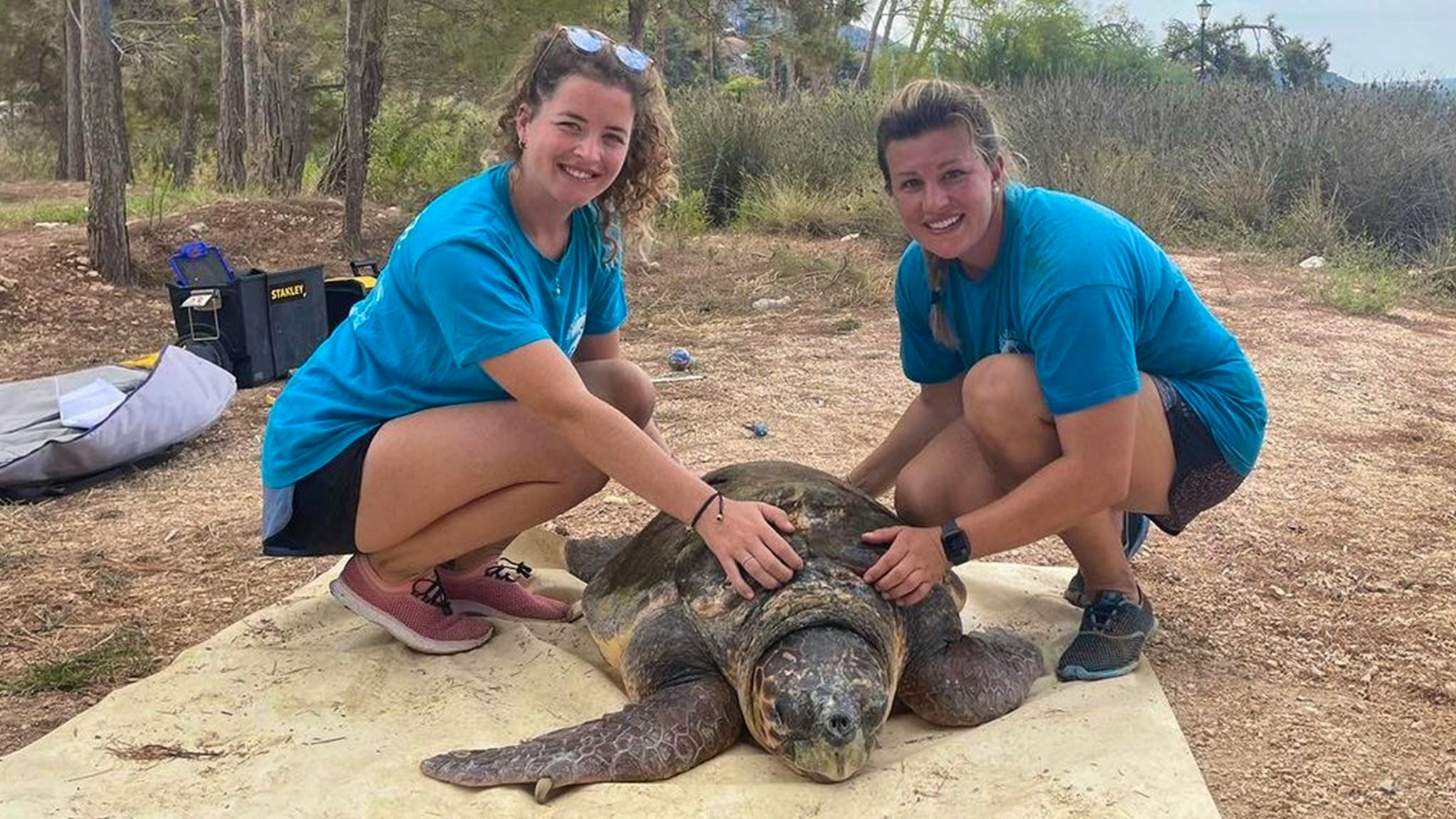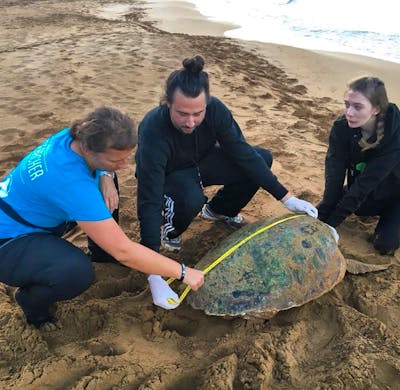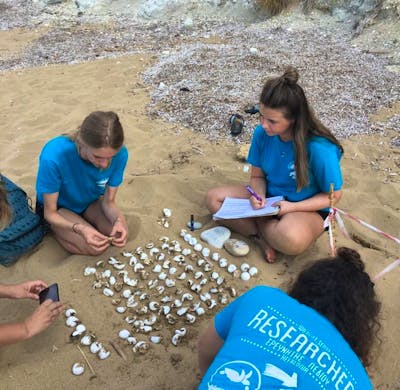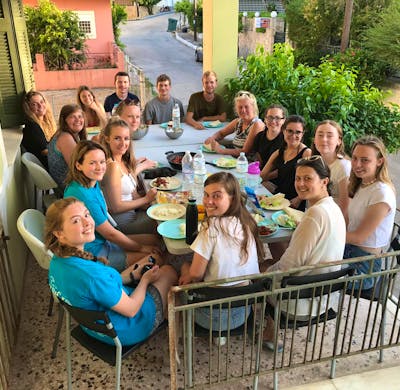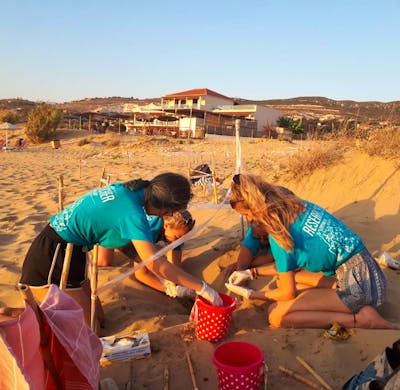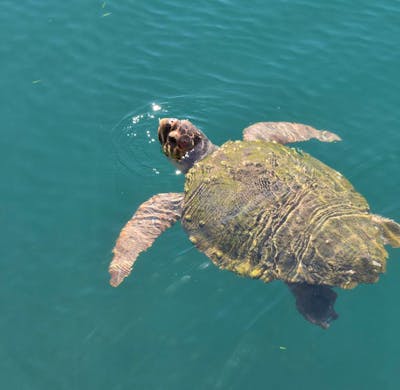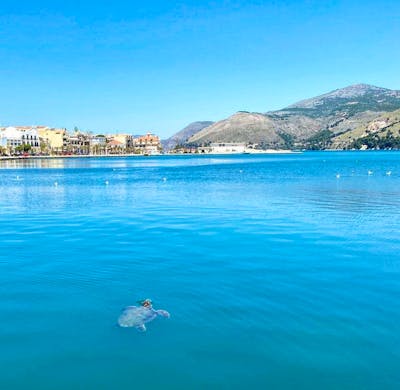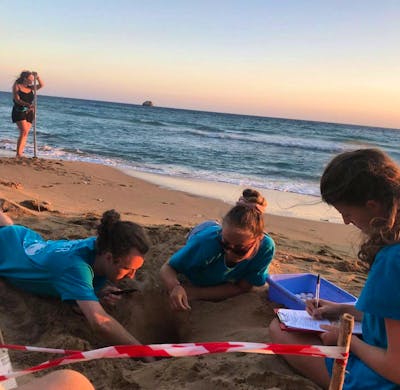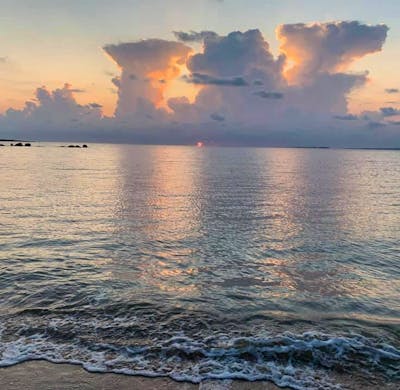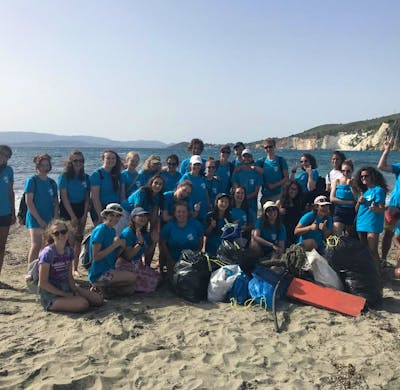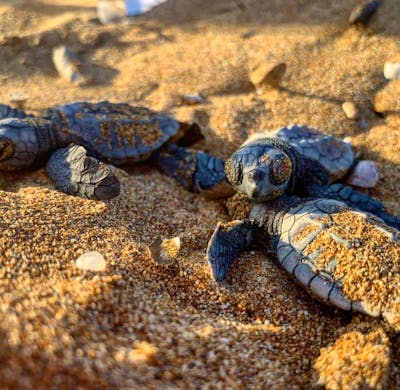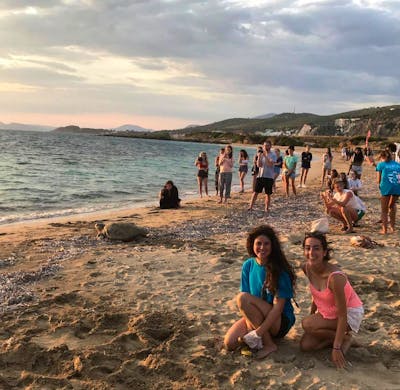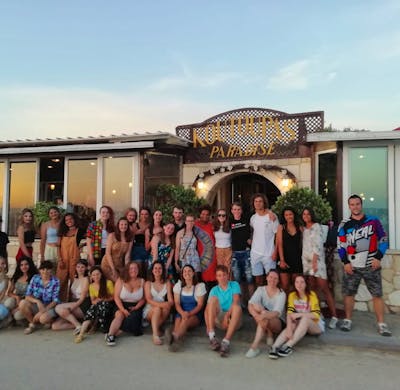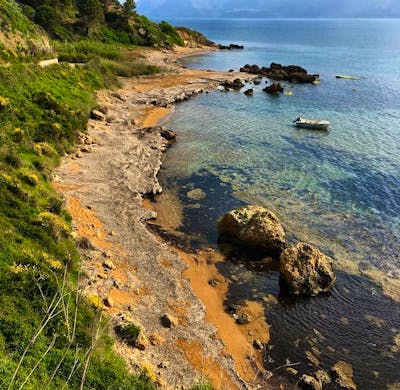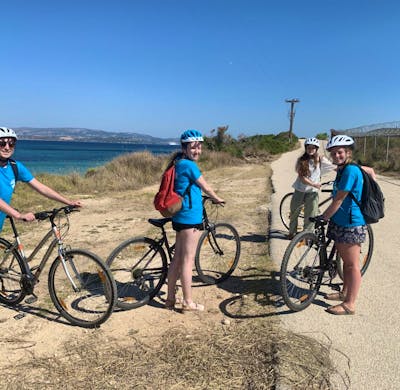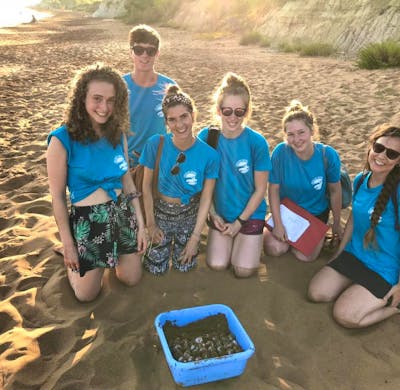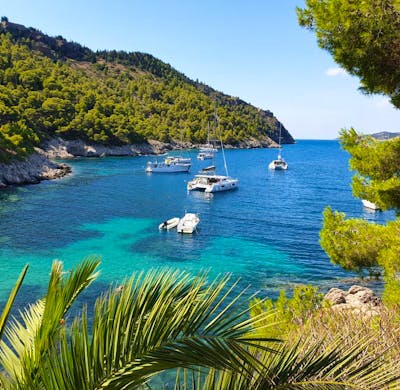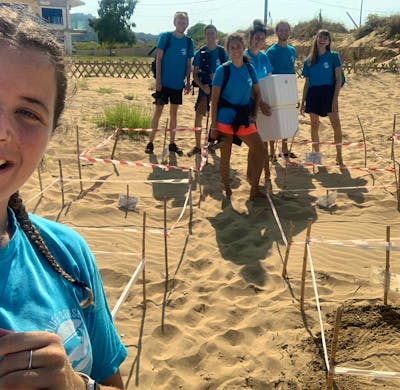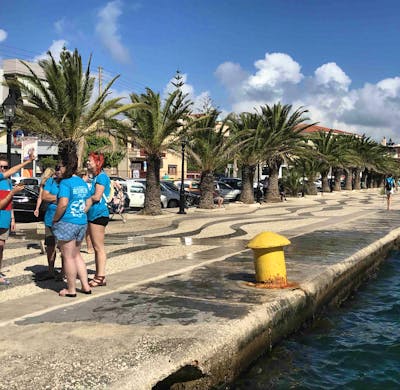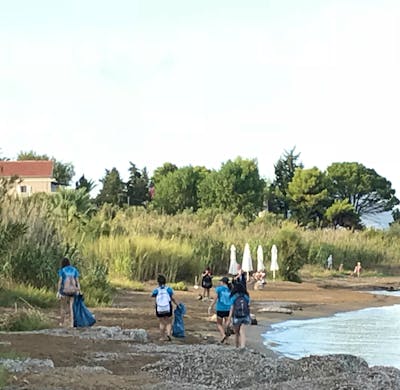Protect endangered sea turtles through hands-on fieldwork as a Greece turtle conservation volunteer. Monitor nesting beaches, conduct beach patrol surveys, tag turtles and complete hatching rescues. Enjoy a true research and conservation project adopting an established scientific methodology when you volunteer in Greece.
BACKGROUND TO THE TURTLE CONSERVATION PROGRAM
An array of fauna and endangered species are nestled in the sandy beaches and crystal clear waters of Kefalonia. Located on the outskirts of mainland Greece, the loggerhead sea turtle is one of the island’s most interesting endangered species. More specifically, they are the only marine turtle nesting in the whole of the Mediterranean.
As a result, Kefalonia is an important breeding ground for loggerhead sea turtles. Sadly, there are many threats that push the sea turtles of Kefalonia closer to the brink of extinction. Both human and natural threats damage and destroy many of the eggs laid on the island’s sandy beaches.
Furthermore, the turtles themselves are regularly disorientated, injured, or killed by a range of hazards. Examples include accidental boat strikes, swallowing plastic, light pollution or getting caught in fishing gear. These threats extend on a global level and endanger all turtle species including green sea turtles and leatherback sea turtles.
The loggerhead turtle can be distinguished by their large heads, reddish-brown shells and yellow/brown skin. In addition, they are one of the oldest species in the world. Our goal through this sea turtle conservation project is simple. To clarify, it is to study and protect the endangered loggerhead turtles of Kefalonia and their ecosystems.
Every year, sea turtles migrate to Kefalonia to forage and reproduce. Females nest in Kefalonia on average five times in one breeding season. The nesting activity itself mainly occurs at night throughout the summer months. Laying around 100 eggs each time, hatchlings will occur 2 months later and newborn turtles emerge. They will make their way into the sea at night when risks of predators are lower. In the interim, you and your fellow volunteers will work towards a primary goal of protecting sea turtle nests against accidental damage.
Volunteer opportunities provided by PMGY offer a platform to make a positive impact when you’re volunteering with turtles. When working as a Greece turtle conservation volunteer, it is important to maintain energy, enthusiasm and creativity. As a sea turtle volunteer, you will need to donate your time and skills effectively. This is to ensure you can maximise your conservation work and the impact of your field research through a volunteer experience. Greece is our only European destination where you can embark on a wildlife conservation program project.
TURTLE CONSERVATION VOLUNTEER PLACEMENT EXAMPLES
Sea turtles nest along Kefalonia’s southern coast. To maximise the areas in which we can monitor, we have established two field stations at separate locations on the coast. Consequently, your volunteer work in Greece will take place in one of two locations. They are only a short 30 minute ferry ride between each other. Depending on which day you choose to begin the program, will dictate your placement setting as a Greece turtle conservation volunteer.
Argostoli - Your program start date for the Argostoli location is on a Sunday. Regarded as the capital town of Kefalonia, Argostoli is closer to the beach locations and nesting beaches. The town’s coastline is rich with short, narrow beaches and colourful cliffs. Most importantly, the beaches spread across a wide area and represent an important nesting habitat for Kefalonia’s sea turtles.
The field station base at Argostoli stretches over eleven beaches varying from 100 metres to 1 kilometre. We will work in sub-teams to conduct morning beach surveys to ensure all locations are covered. Additionally, the bay of Argostoli blends into the Koutavos Lagoon. The warm waters here become home to several sea turtles during the summer season. They will usually congregate in the harbour of Argostoli visible to conservation volunteers and tourists.
Lixouri - Your program start date for the Lixouri location is on a Tuesday. Established as the main town on the peninsula of Paliki, it is lined with long south-facing beaches. Nesting beaches are in abundance. Some have unusual characteristics including red sand and clay cliffs. Each brings its own risks and vulnerability. In short, the warm sandy beaches are a hotspot for loggerhead sea turtles to lay their nests.
On the sea turtle conservation project in Lixouri, you will patrol the nesting beaches for sea turtle tracks on the sand. Such tracks have been left by the female turtles that emerged on the previous night. Assess the tracks, verify the location of eggs and mark the location. Moreover, work with the field assistant to collect scientific data that is most useful for the protection of the nests. During hatching season, check the beach for hatching tracks and conduct nest inventories to assess each hatching success.
In terms of conducting field surveys, there are two main differences that exist between each field station location. In Lixouri, main nesting areas are patrolled through the night. This is done to spot, measure and tag the nesting female turtles. However, this is not the case in Argostoli where night surveys do not exist. Since nesting in Argostoli takes place over a range of small beaches. Consequently, it is difficult to predict where the turtles will nest.
Observation shifts in the harbour of Argostoli focus more on monitoring the feeding and behaviour of the adult turtles. Turtles concentrate here regularly and you can congregate with your fellow volunteers to monitor this endangered species. Whereas harbour shifts in Lixouri focus simply on spotting turtles in the harbour where they are less common. The number of turtles seen in the Lixouri harbour seems to be increasing every year.
Aside from these differences, your typical daily tasks on the Greece volunteer program will remain similar. Moreover, you can take the short ferry ride between each location in your free time. As a result, you can develop an understanding of the typical environment in each setting.
OTHER THINGS TO CONSIDER VOLUNTEERING WITH TURTLES IN GREECE
Project Focus - This program is very much focused on conservation activities rather than a traditional gap year/volunteer travel experience. This involves working a 5 day week with the potential of early morning starts or working on the beach during the night. There is plenty of downtime but the team does expect people to be punctual and join all their assigned shifts. You need to have a big passion for marine conservation and use this as the main motivation for joining the trip. Most participants have a wonderful experience but a small number of people can find the program to lack the cultural and travel balance that our other destinations offer.
Cycling - The fieldwork covers a range of nesting beaches that spans over a large area. The easiest way for volunteers to get from point to point is by bicycle. This is particularly the case in Lixouri where it is an 8km distance from the main town to the nesting beaches. Therefore, volunteers must be comfortable cycling a bike on hilly terrain and be able to walk the beaches on hot days. You will always cycle as part of a team leaving at scheduled times. Moreover, you can use your free time to hop on the bike and explore the local area further.
Volunteering with Friends - You are welcome to join the Greece turtle conservation volunteer program with a friend. You can highlight this in the special requirements of the online application. Subsequently, our team can ensure you stay in the same accommodation and project location. Moreover, they will do their best to give you both the same free days each week. However, it is important to note that there is a large range of fieldwork covered each day. Consequently, it is not always possible for our team to place you with your friend in each fieldwork setting.
Days Off - Your project work in Greece runs 5 days a week. This project runs 7 days a week, so volunteers are assigned different days off to ensure the project always runs. Therefore, it is likely that your days off will vary across the week and not necessarily be consecutive days off. You are welcome to relax and hang out at the volunteer accommodation on your days off. However, most participants will use this time to travel and explore the island. Check out our Greece Weekend Travel Guide for top tips on how to spend your free days.
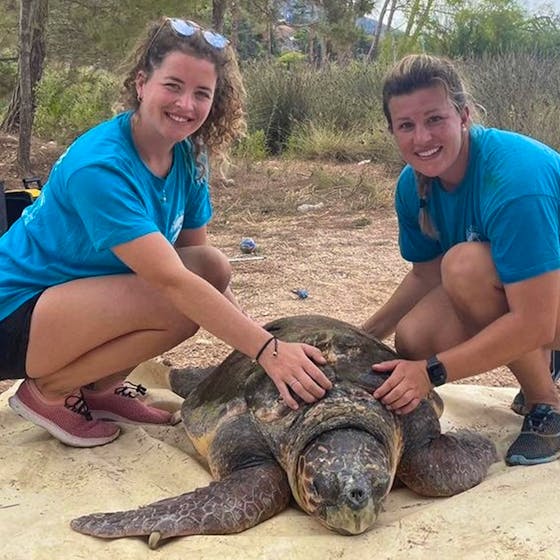
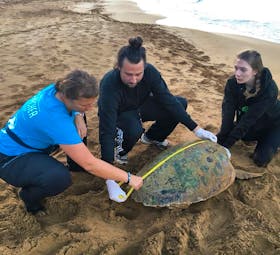
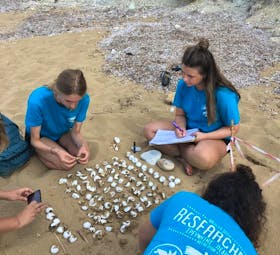
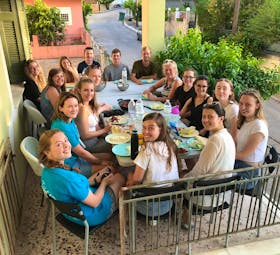
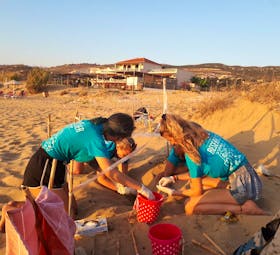
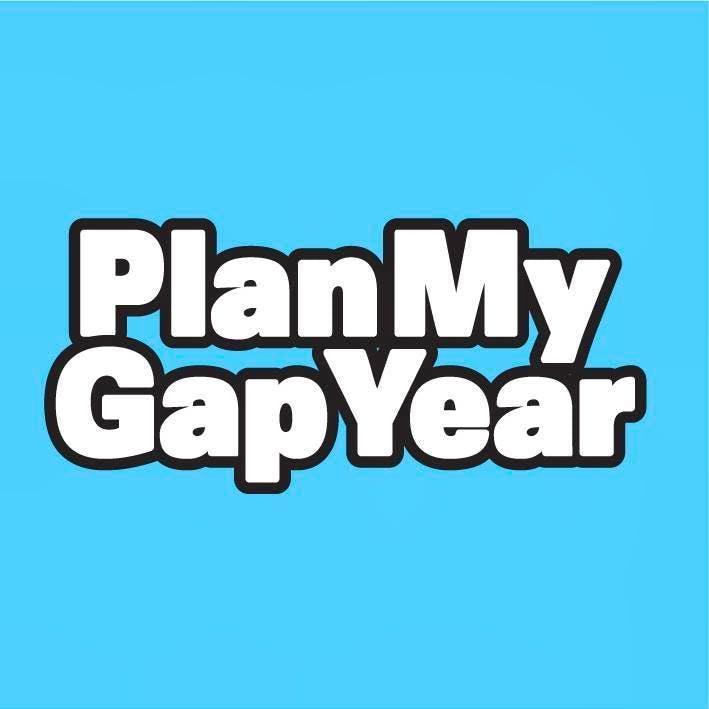
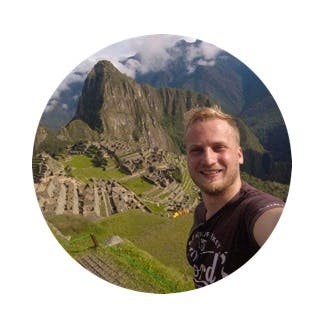
 4.9
4.9

